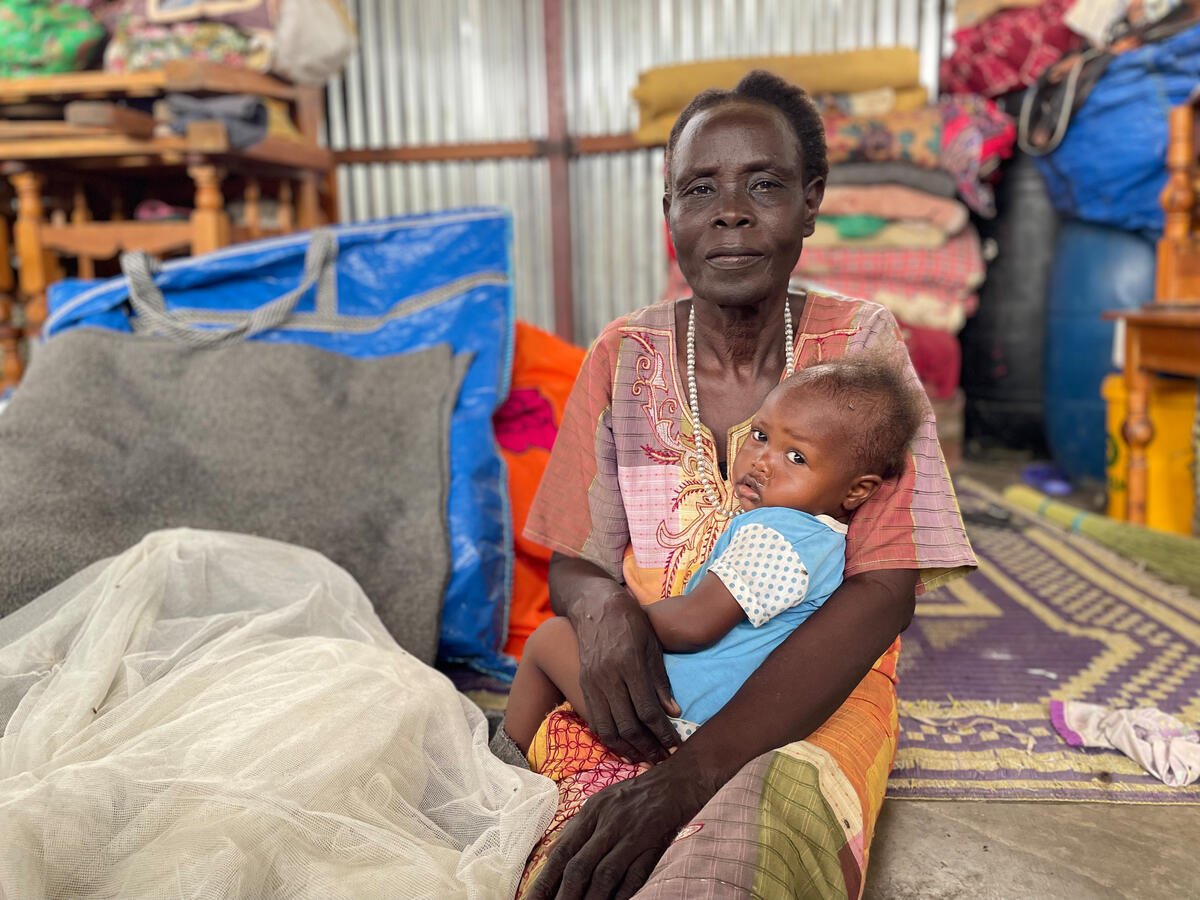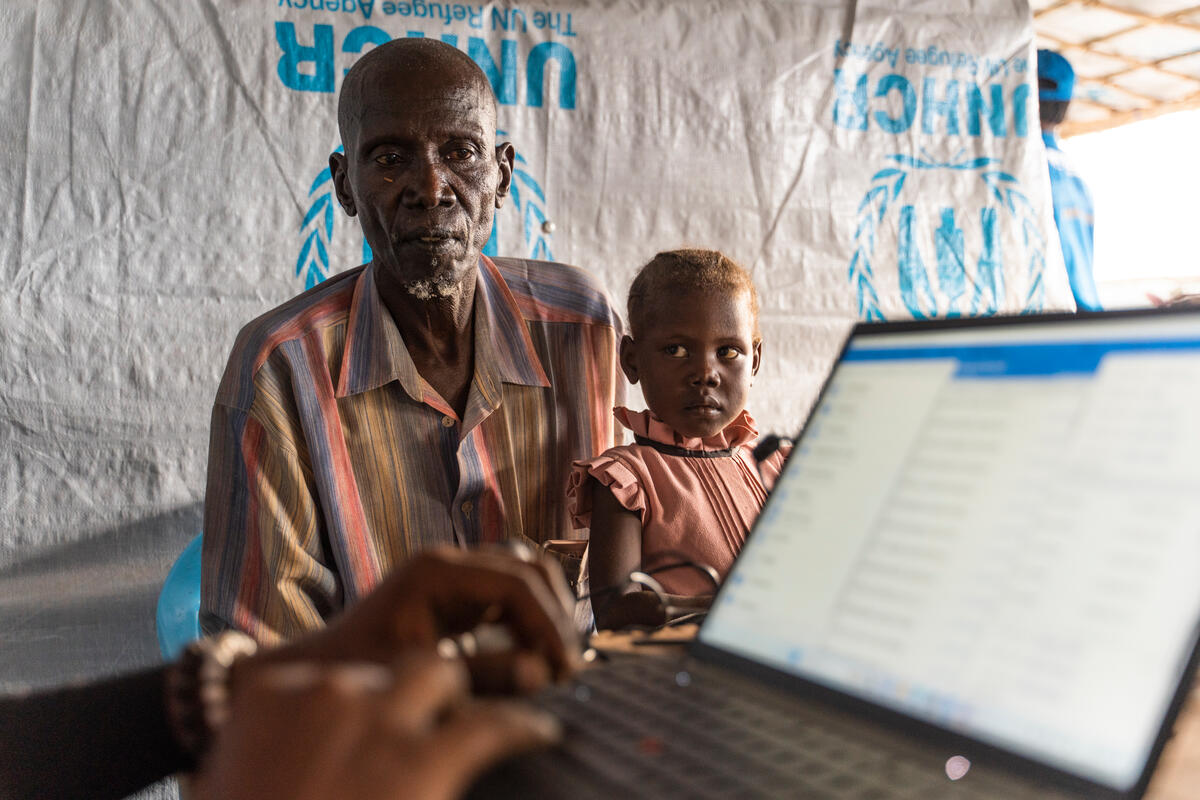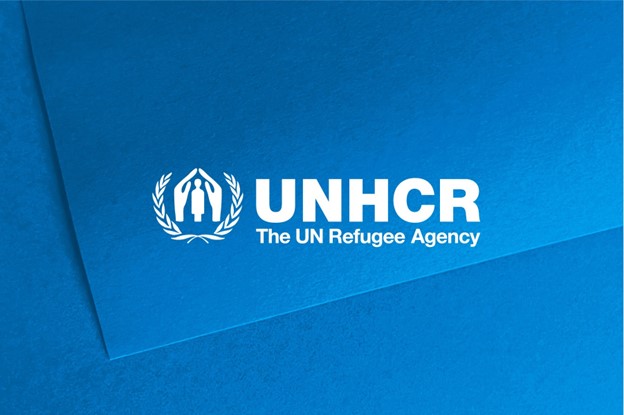Refugees take climate action to restore and revive their community in Zimbabwe
Refugees take climate action to restore and revive their community in Zimbabwe

Bernard Mutangana, 39, a Rwandese refugee who now lives in Zimbabwe’s Tongogara refugee camp, founded Global Change for Development (GCD), an organisation that supports tree planting, organic food gardening, and other projects that help the refugee community while also restoring and revitalizing the environment in the camp.
"Some people wonder how we will heal the emotional wounds of violence and war. Not only in Africa but everywhere,” said Bernard. “For me, doing good things is how you heal your wounds.” That’s why he founded GCD.
Around the world, forcibly displaced people are often the first to endure the effects of environmental degradation and climate change. Many live in places that are considered “climate hot spots,” and at the same time lack the resources to deal with the changing environment. Climate change has brought additional worries to refugees who left their countries searching for a safer place.
Tongogara, which is home to more than 15,000 refugees, has experienced deforestation in and around the camp in the past years due to wood being cut down by the refugees for cooking, housing heating and fuel. Climate change-related disasters are affecting the entire country. Droughts have become more frequent and rainfall patterns have shifted, according to the United Nations Development Programme.
“For me, doing good things is how you heal your wounds.”
In Tongogara refugee camp, refugees like Bernard are taking action to restore the environment and mitigate the effects of climate change. GCD is one of several projects, including the Refugee Child Coalition for Climate Action (RCCA) and Assorted Energy International (AEI), championing action in the camp. Some are led by young refugees hoping to use their skills and networks to inspire others to join them in their cause. So far, the results are promising, with the camp seeing an increase in clean-up campaigns, gardens, and solar power.
To fight deforestation, GDC has planted over 1,300 trees in just two years. And Bernard is also currently leading a project on organic food gardening to grow vegetables, grains, tubers, and plantains. Last year, GDC received a grant from Real Food Systems, an advocacy platform that promotes sustainable food systems as a tool to combat climate change.
"With GCD, we also want to fight poverty through the ecosystem," Bernard said.
Gawaar Juich, 26, is a South Sudanese refugee who fled his country because of the civil war that led to the attack on his town by gunmen in 2018. He leads the Refugee Child's Coalition for Climate Action (RCCA), which aims to empower young refugees to become climate change advocates.
The RCCA organizes environmental discussions about climate action, tree planting activities, and campaigns to clean up rubbish in the camp. UNHCR provides them with technical support, masks, and gloves for the clean-up campaigns.
Gawaar said he was motivated to be involved in climate action by what he saw on the news, such as the wildfire that destroyed parts of Australia's forests, houses and infrastructures in 2020.
"If you empower refugees, they will be assets to the entire community."
RCCA initially conducted a survey asking young people about climate change and what they could do to help. Most of the respondents said they didn't know how to start.
Gawaar said he noticed that children are more interested in the environment and climate change now that he and others have been raising awareness. He added that some children had told him they had started cleaning up their backyards, stopped littering, and told their parents to do the same.
"Our team has been following the trend of the havoc climate change has been making across the world," Gawaar pointed out. "Climate change is real, and the future is very worrying. If you empower refugees, they will be assets to the entire community."
RCCA received funds from the Global Refugee Youth Network (GRYN) in March.

The GRYN also funded Assorted Energy International, a solar energy project led by the young refugee Yves Umuhoza, 28, originally from Burundi. Yves came up with this idea to promote clean energy technologies after obtaining a Bachelor's of Engineering Honours Degree in Fuels and Energy in Zimbabwe. AEI has ten members, including nine refugees and one Zimbabwean. The organisation has installed solar panels and conducted information sessions on their installation for two refugee youth-led organisations in Tongogara Refugee Camp. The group has also donated solar lighting kits to people with disabilities in the camp.
"Our plans as an organisation involve going beyond just installing solar systems to other refugee youth-led initiatives," Yves said. "In the next five years, l envision Tongogara as a modernized community with individuals contributing to the sustainable development of their communities, the nation, and the world at large."
*Barthelemy Mwanza was a recent participant in UNHCR’s Refugee Journalist Mentorship Programme, a project created to support refugees, internally displaced and stateless people who want to tell the important stories of today.









